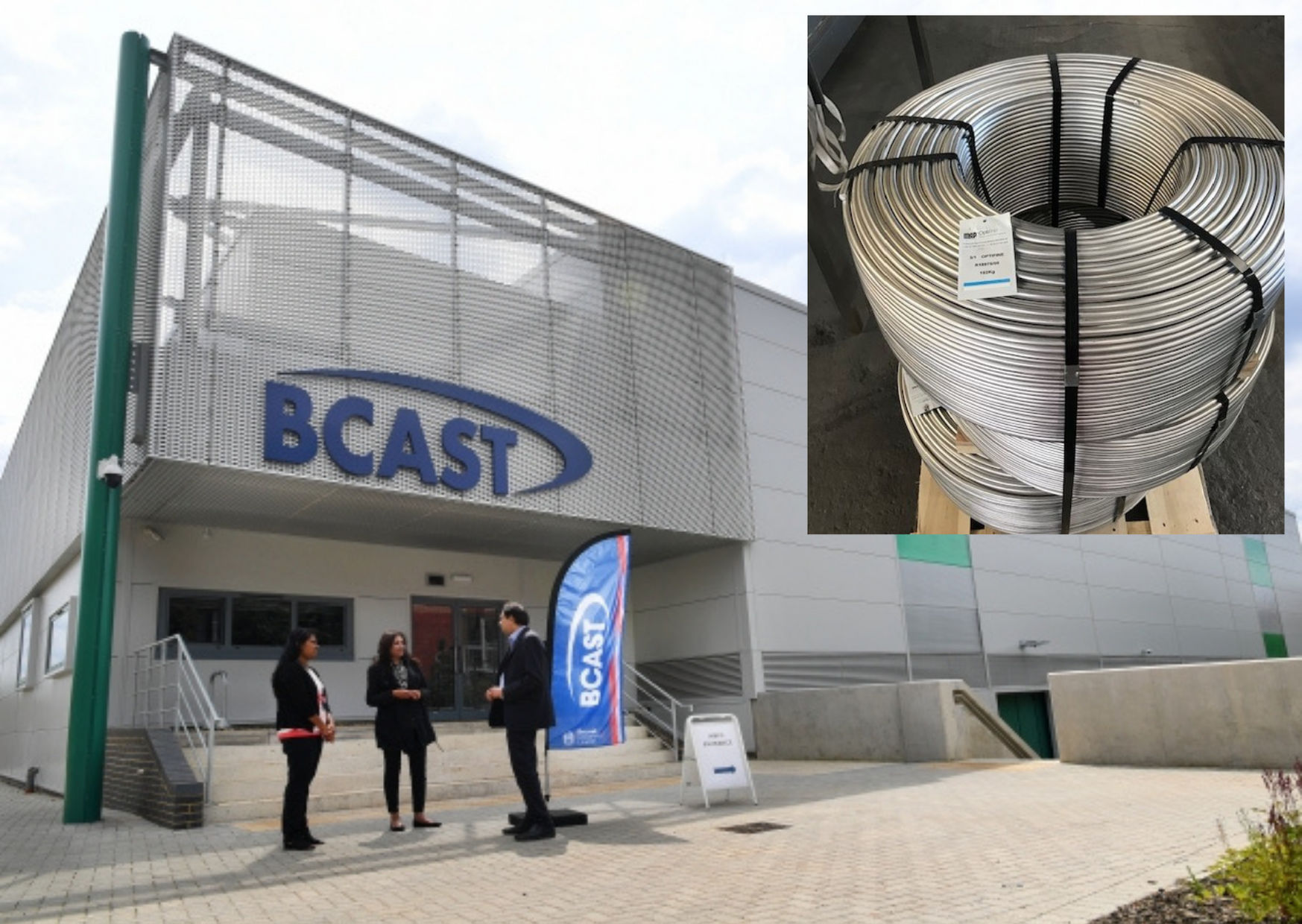Pioneering research into the efficiency of grain refiner to bring down aluminium waste, carbon emissions and manufacturing costs is back underway at Brunel University London.
The major research, a collaboration between the University’s Brunel Centre for Advanced Solidification Technology (BCAST) and grain refiner specialist MQP, began in February, but had to be put hold due to the Covid-19 lockdown in March.
Dr Jayesh Patel, who is working on the three-year project in a team led by BCAST founder and director Professor Zhongyun Fan, said: “We’d literally got the research underway when the university had to close, which was really disappointing for us. However, the lab is now back up and running and early findings are looking positive.”
The collaboration between BCAST and MQP was formed after a decade’s research by BCAST into the industry-wide problem of inconsistency of aluminium quality on a global scale, resulting in huge waste and substandard products across manufacturing, from the foil and extrusions sectors to aerospace and automotive.
Key to this is the well-documented inconsistency of grain refiner, which is added in the production process by casthouses to eliminate cracking, waste and poor quality material in billets and slabs for everything from airframes to food cans.
MQP had been following the published academic studies aimed at understanding the mechanism of how grain refiners work, primarily research by Lyndsey Greer et al at Cambridge University on the discovery of the presence of Al3Ti on the surfaces of TiB2 particles and how this might play a critical role in nucleation.
Discovering that BCAST had gone even further in studying the Al3Ti layer at the atomic level using state-of-the-art High Resolution Transmission Electron Microscopy (HRTEM), of which there are only four units in existence worldwide, the scene was set for a collaborative research project to implement the science in an industrial setting.
MQP’s technical manager, Dr Shervin Tabrizi, who is also part of the research team, said: “Aluminium is being increasingly used in manufacturing. It’s far lighter than steel, so results in less carbon emissions, helping protect the environment and the climate. However, the inconsistency in quality because of the fluctuating impact of the grain refiner is a problem worldwide.
“With this research, we are using highly sophisticated technology to put BCAST’s findings into practice, unlocking the technology to ensure grain refiner can deliver higher efficiencies and improve aluminium quality and the manufacturing process on a global scale.”
MQP’s Optifine grain refiner was chosen to go under the microscope due to its high efficiency. High efficiency results in lower addition rates which lead to significant improvements in melt quality, with up to a 70% reduction in particle count as measured by Limca, reducing the potential for defects in finished product. Through the BCAST research, results could go even higher.
As casthouses only need to use a third of the amount of standard TiBAI grain refiners typically used, it can also bring costs down by half and means less coil changes and transportation around the casthouse and lower warehouse inventory.
Produced in a state-of-the-art facility, Optifine is now achieving exceptional results in the production of over three million tonnes of aluminium alloys annually in 34 major casthouses worldwide, and is increasing its market share in North America, South America, China and Asia.

